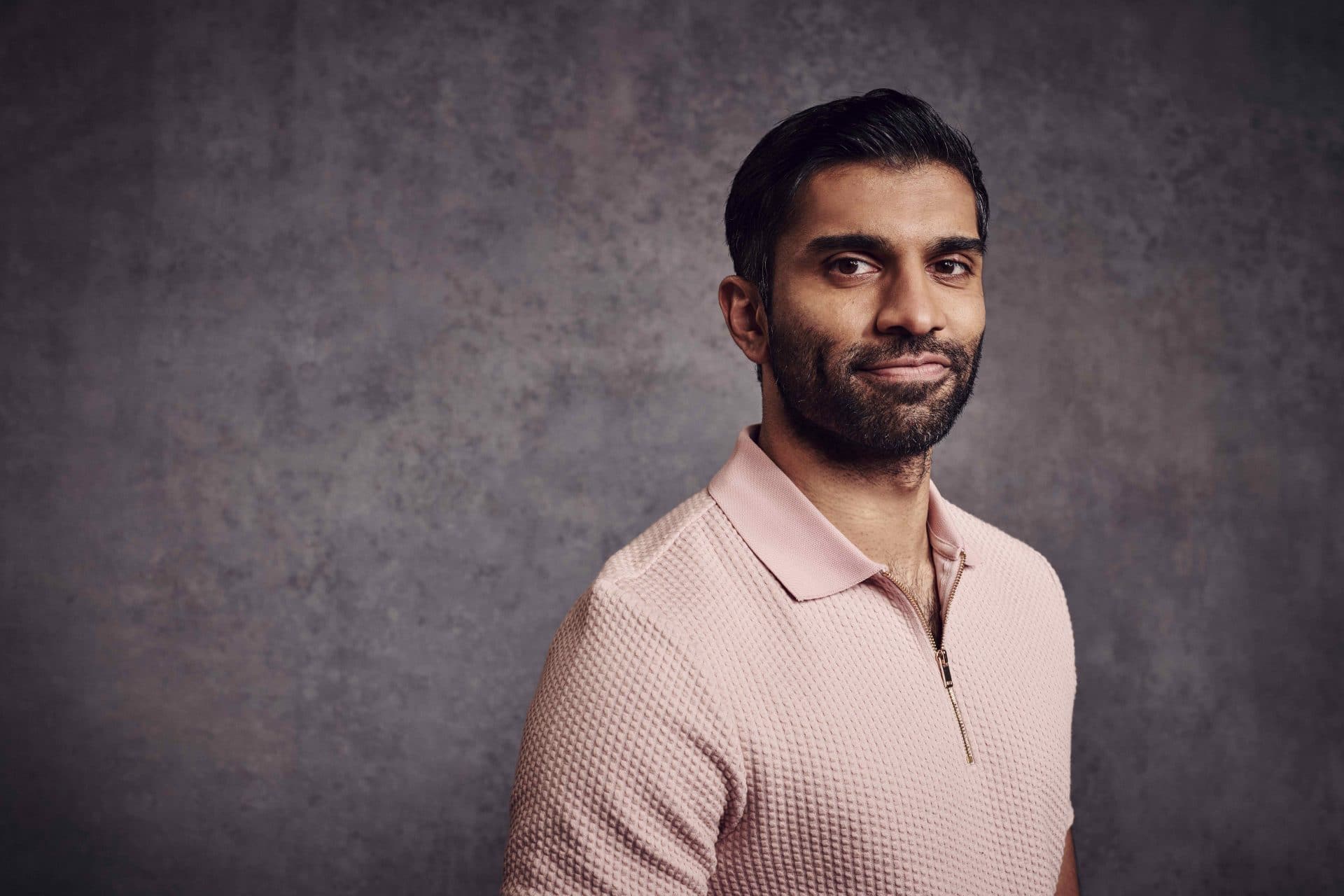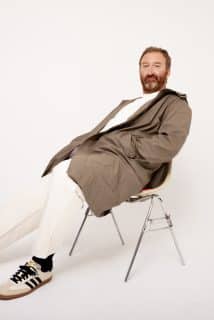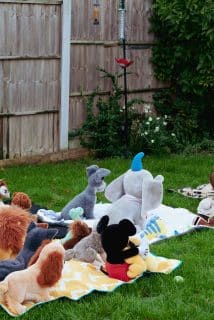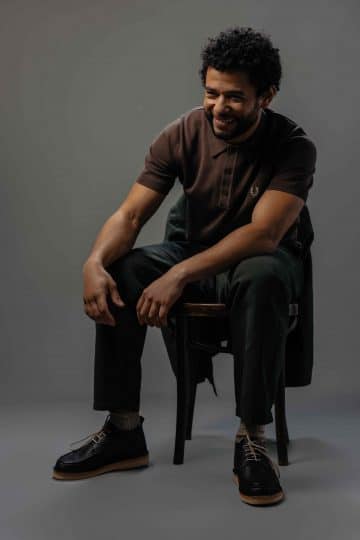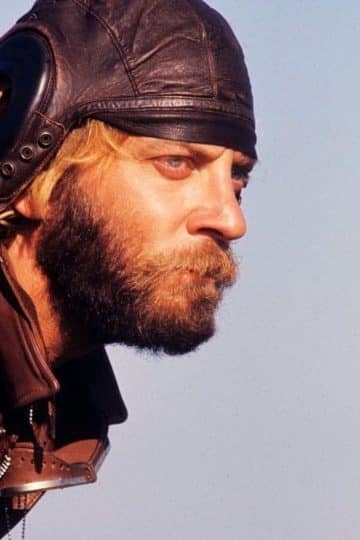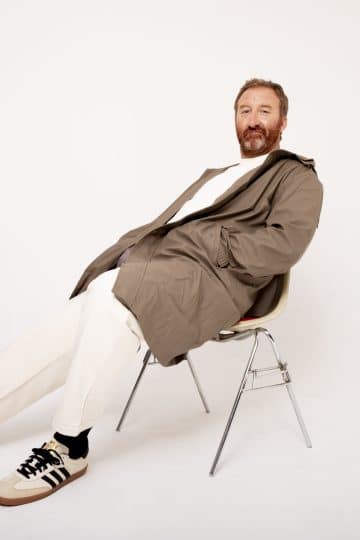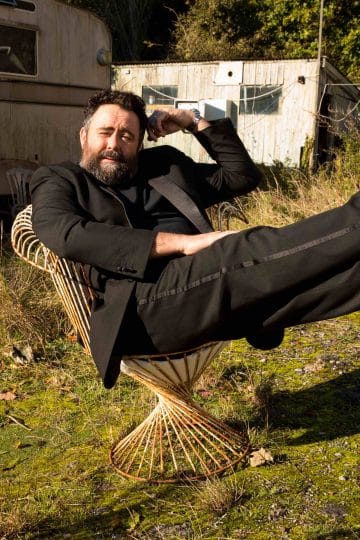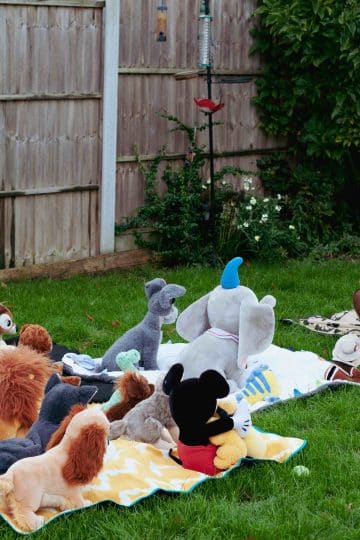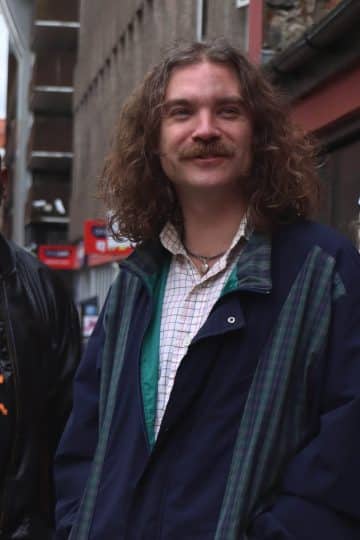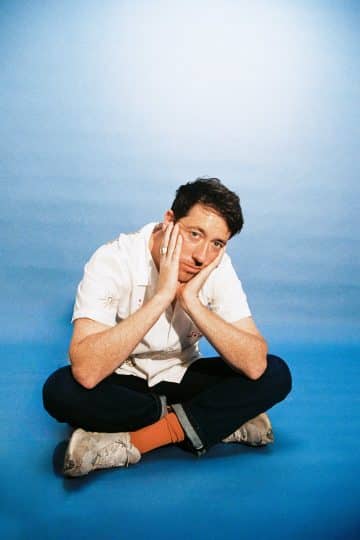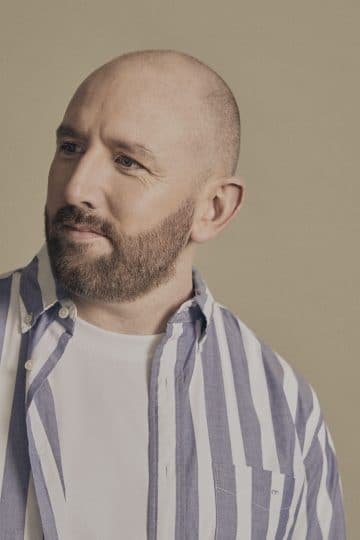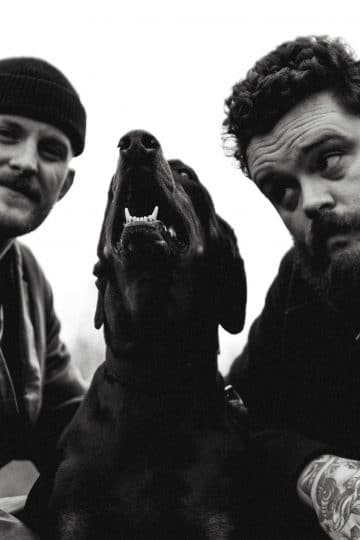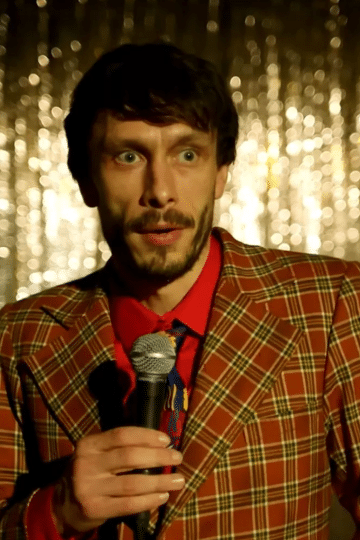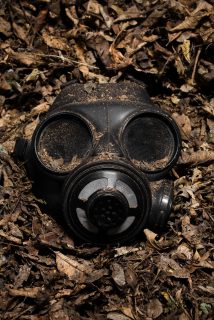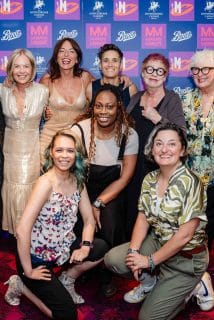Nikesh Patel: “I feel bolder in being able to question things”
Culture
The actor talks about his role in the BBC comedy 'Starstruck' and how the calls for more diversity in society, and the pandemic, have affected him and his work in the industry.
Nikesh Patel is one of those instantly likeable actors who can play anything and have audiences immediately on his side. Loved for his roles in Doctor Who as The Master, Artemis Fowl and now The Devil’s Hour, he truly won our hearts and minds in BBC comedy ‘Starstruck’. Written by and starring the comedian Rose Matafeo, the show is a clever and very funny take on rom-coms in which Nikesh stars as Tom, who Rose’s character Jessie has a one night stand with, and who, much to Jessie’s shock, turns out to be a famous film star. The subsequent ‘will they, won’t they’ story is packed with originality and laughs, and is basically a great joyful burst of energy which feels right for these tentative-but-definitely-exciting post-lockdown times. We spoke to Nikesh to find out more about the series and being an actor in these unique times…
Can you tell us about Starstruck, and who you play?
The show follows Jessie, played by Rose Matafeo, who’s in her 20s, working several jobs and keeping her head above water in London. She finds herself dragged along to a New Year’s Eve party with her flatmate and ends up having a one night stand with a guy; she wakes up at his flat in the morning and discovers he is a famous movie star called Tom Kapoor. The show is a rom-com so it follows that relationship as well as Jessie trying to make sense of her own life.
It’s fun playing a movie star and I think the real strength of the show is Rose and Alice Sneddon’s writing. It feels like its shot through with a really keen eye for modern relationship and the way people engage with the city and navigate friendships. It’s got a distinctly dry sense of humour. We made it in September, October, November of last year, and towards the end of filming we went back into lockdown. That was when the film and TV industry was given dispensation to keep working within guidelines. The first scene in the show was a big party at a club in London – chronologically the show exists in a parallel universe without Covid – but there was something about even simulating being in a club. Even though you’re doing take after take, it was still a rush being there, and we even had passers-by thinking the place was open and trying to get in.
It was a really joyful experience to make and I feel like we all need joyful things now.
Did you base you film star character on anyone?
There wasn’t anyone distinctly in mind, Tom felt very well realised on the page already. And his relationship and the dynamic with Rose’s character anchors him in a lot of ways. You do draw on your own life experience where it feels applicable, and in certain cases I’ve not directly been in those situations but I’ve been in stuff that’s similar. You draw on your own experiences and extrapolate. Without giving anything away there were some things that poke fun at certain ridiculous bits of life of fame at this level. I’ve had friends experience it, and it was quite fun hearing from Rose and Alice what those scenes were informed by. When actors misbehave or lose the plot in press junkets where you can tell they’ve been answering the same questions by well meaning journalists for 7 hours. Also if you’re super famous and super rich what comes with that is a lifestyle that is quite pampered and infantilised in a lot of ways.
I also think there’s an element of his character where he’s achieved a level of fame quickly and didn’t ask for it and that’s quite interesting to explore. The idea of his heart being somewhere else but reckoning with the privilege granted to you by the way people look at you. The automatic kudos you’re given in a celeb obsessed culture. The shows plays with that a lot and one of the reasons Tom is drawn to Jessie is that sometimes she quite mercilessly cuts through all that. It’s these two quite goofy human beings trying to strike up something.
What’s Rose like and how was it working with her?
It was a joy. I’m excited for people to see this show – if they already know Rose’s work as a stand-up they’ll know she’s not just someone who writes gags but is a really gifted performer. And I was actually a Rose fan, I had been to her gigs before, and it was very uncool of me to admit I was a fan of hers before I was cast.
She’s a really good actress and that comes through. Sometimes when comedians create a vehicle it can be quite exposing, yes they can land a joke but playing a 3 dimensional human being is a very different thing. Annoyingly Rose is great at both!
My experience from having played characters in rom coms before is that it hinges on the writing and rapport that sparks. Although the audition process for this was in lockdown so my first unofficial screen test was on Zoom – we were reading scenes but I was making sure she was full screen, pinned. Then the next stage after that was in person but we had to maintain social distancing. So that was a weird way to work, meeting someone but not being able to get closer than 2 metres. Imagine how first dates would go if you weren’t allowed to go within two metres.
But it’s very easy to play good writing, particularly when you’re trying to sell two people that are into each other.
Rose does that and also understands human beings can be lots of things at one time, so Tom can be comfortable with certain elements of this movie star lifestyle but is also someone who can be unsure and uncertain in some areas of his life. That felt very believable.
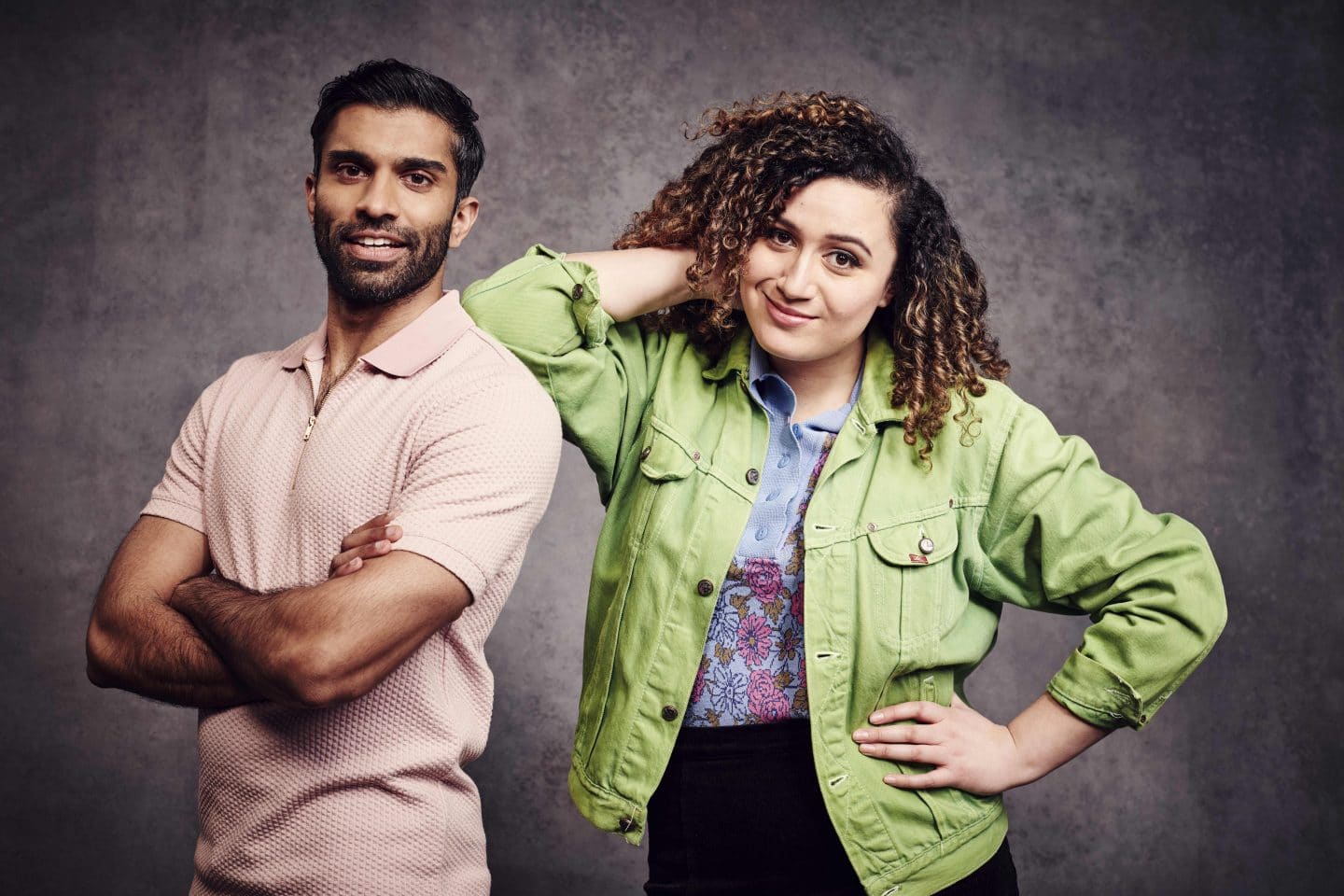
Is it important to you to play characters with different sides to them, exploring nuances of being a man?
The glib answer is if they don’t have that complexity they’re quite boring to play. Sometimes we all relish a really well done two dimensional bad guy, but I think in a genre like this the only way to evolve the story we tell and to connect with audiences who are so savvy and have exposure to so many different kinds of shows now, is to offer something that feels truthfully observed.
Separate to that there’s a reckoning with just how we talk to and about each other in the last year during Covid. The need and importance of checking in with each other. The question ‘how are you?’ means a different thing to what it did over a year ago because we’re more attuned to that fact people can get anxious or depressed. Or find elements of life that we maybe wouldn’t have scrutinised before the pandemic. It’s made people stop and realise what they want from their lives and also how patterns of behaviour that might have been ok before, might have to change.
Just going back to your question: we all contain multitudes, we all contain people who are funny, sad, sexy, miserable, and I think writing that understands that, not that you’re going to get a character to show all of that off, but it draws you in if a writer knows not the most obvious choice can make it more human and relatable.
There is a lot of discussion about diversity and representation in society, and coupled with the fact there’s simply more TV, is it an interesting time from your point of view as an actor?
Yeah I think it is. It does feel like there’s a bit of a boom because of the advent of streamers and multiple platforms trying to create stuff. At a time where TV is so ambitious, there are people constantly pushing the limits of what’s possible and raising the bar for what we can expect from a TV show.
I think there is a lot of possibility. Casting in particular. Like every industry, Film and TV have to do a bit of soul searching after the events of last year in the wake of the George Floyd murder. It prompted a reckoning of what racism and structural inequality looks like, and how it operates. So I think lots of good conversations are being had, and speaking personally it’s made me feel bolder. As someone who has done this for a little while, I can now be part of those conversations and ask questions and know they won’t be met with defensiveness as they may have done in the past. And also sometimes that questioning is actually welcomed – there are people who want to change and make things better.
The flipside of that is where there is a reluctance to engage or just do things as they’ve always been done. But actors of my generation and the one coming up, feel involved and braver and more willing to question – why can’t we challenge the way things have always been? That’s how progress happens, right?
I’m cautiously optimistic, I’d say. Another thing that will be interesting and this isn’t exclusive to my industry, is when restrictions eventually lift, we’ll have to recognise what has changed. Beyond posting black squares on Instagram and saying they want to get better. That was great but in the intervening time are people still committing to that?
The way we consume the news cycle at the moment is just one thing superseding the other, not just in terms of dealing with big stuff like structural racism but also pop culture. I was thinking how long ago sea shanties was, it was only three months! It feels like a lifetime.
I think our handle on what matters and what we choose to focus our attention on has been scrambled by this time and it’ll be interesting to see what has changed when we connect back to what’s important. I certainly feel like it’s made me think in lots of ways what do I value, what’s important to me, what am I spending my energy on? And being able to unplug and go ‘I’ve been doing that unquestioningly for days weeks months but it doesn’t really bring anything fulfilling.’ Maybe I now feel braver about letting that go. And actually being open to connecting with creatives to collaborate with or allowing myself a space to physically and mentally reset.
It’s important to someone in my profession but I don’t think its unique – lots of people have had the chance to come out of this with some lasting change.
In terms mental health care are there things that you will carry forward?
Yeah there is. Firstly that there is no hard and fast bullet point list and so what we individually need has to be flexible and open to change. In a similar way to the way your body adapts and plateaus when you’re doing the same thing over and over again with no change, with nothing new to mix it up, I feel like my brain has done that as well. There are things that have definitely helped, like cutting down on screen time. I’m no saint, there are definite times when I drop the ball but that’s been helpful.
Winter felt endless. London s my home, the best city in the world, but there’s something about being in London where everything’s shut, and you think, well, what’s it got to offer when I cant see people and we can’t go out clubbing or for a meal? That’s been interesting. I feel like city dwellers and much more appreciative of a bit of quiet, a bit of green space.
I think the most important thing I learned was just managing my friendships in this time. The importance of being direct. Partly this is a British thing, we’re very good at talking around stuff. I’ve learned that whenever it starts to feel difficult just be direct and say ‘I have a problem with this.’ It’s almost always the case that when you talk it out, it’s better than letting things fester.
You play a film star in the series but who were the big film stars for you personally?
I remember back when I first started getting interested in more than just being a viewer and appreciating the work of actors like Chiwetel Ejiofor, and the way he deftly goes between stage and screen and playing these different types of character.
Back when the Bourne trilogy came out I was blown away by the reinvention that Matt Damon went through, I had him pegged as certain type of star and then suddenly he was making these really cool thinking person’s action film. Actors like that who bring intelligence to their work/ I really admire Oscar Isaac nowadays his work is fantastic.
What’s exciting is there’s a younger generation taking it in a whole different direction. We’ve had a year not being able to go see stuff but I’ve been watching a lot of the Bafta films in the run up to the awards and there’s a lot of unique talent out there. I feel cries about the death of cinema are premature, it’s a difficult now but there’s still a lot of creativity and noise out there.
These are exciting times with lots of change really..
For sure. I talked about being cautiously optimistic before because I think sometimes the commitment to change or being an ally can be a bit performative. People realise the value of positioning yourself as an ally. But I think there’s an element of once things start to change you can’t put them back in the box. You can’t walk back seeing more diverse shows and how successful they are and how audiences connect with them.
As well as recognising the role its had in making us all anxious, I can’t deny social media has allowed for the championing of voices that in the past may have felt excluded. And it allows for actors and anyone to spotlight who they think is cool and exciting and give voice to the causes they feel passionate about.
Then there’s the side where it’s just people screaming at each other, which is not helpful, but as long as that good is not drowned out I think it’s an interesting space for what it does for pushing progress and activism.
Starstruck is on BBC iPlayer now…
Follow Nikesh on Twitter:
His name is Geoff. https://t.co/BFFrg7FoJn
— Nikesh Patel 🥯 (@iNikeshPatel) April 26, 2021
Trending
Masculinity 5 days ago
Sport 1 week ago
Health 1 week ago

Join The Book of Man
Sign up to our daily newsletters to join the frontline of the revolution in masculinity.



